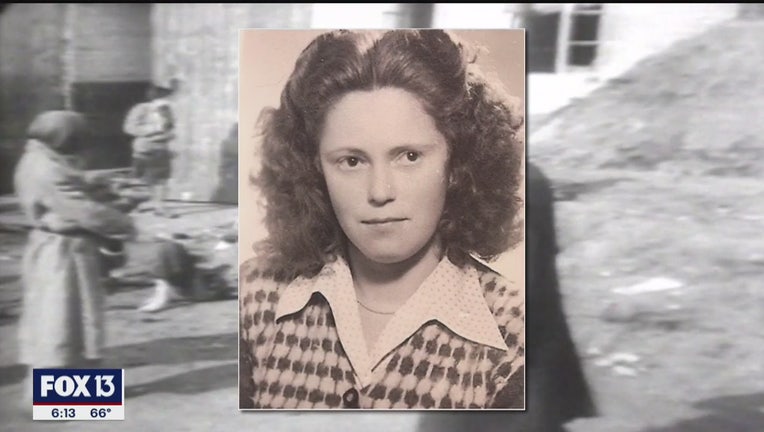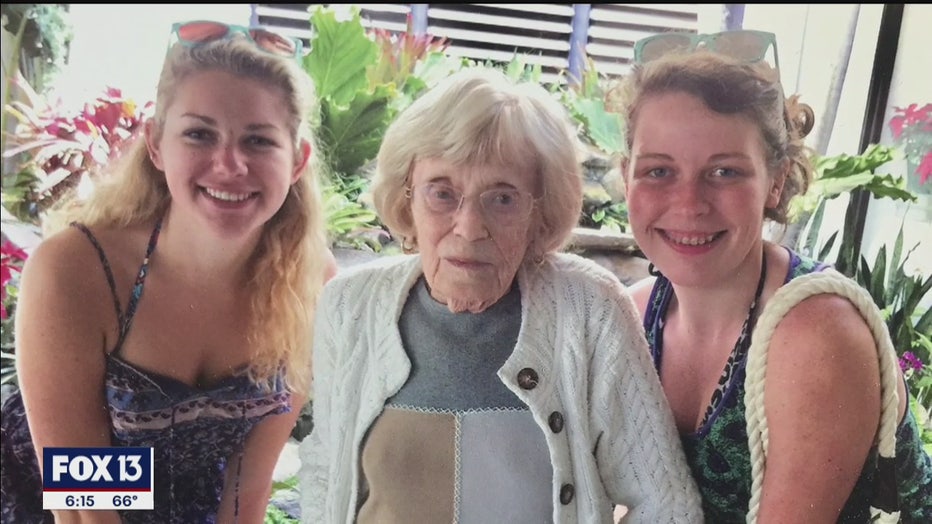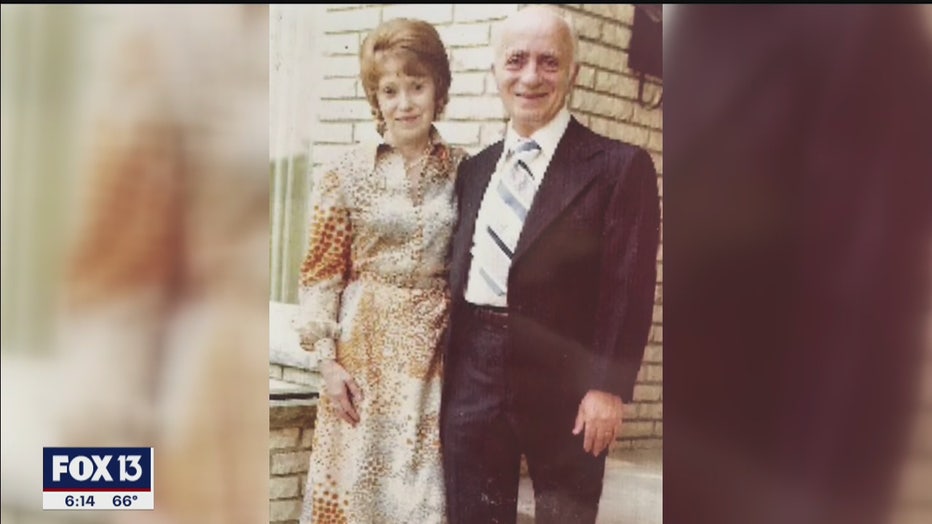Auschwitz-Birkenau survivor's family carries her legacy of hope

TAMPA, Fla. - Exhausted, starving, and chilled to the bone, 19-year-old Rose Safar watched as the Nazis attempted to cover up their crimes while the Soviets closed in on Auschwitz.
"They had ready gasoline around the camp," she said. "They had everything ready, just somebody to tell them what to do, to burn - to burn us or to evacuate."
It was January 1945 and Safar had spent nearly two years at Auschwitz-Birkenau, Nazi Germany's largest extermination camp. But her freedom would come by month's end.
Survivor stories: Sarasota woman recalls learning her parents died in concentration camp
"I was liberated January 27," she recalled in a 2010 historical testimony at the University of South Florida.
Her recorded voice sounds delicate, in stark contrast, says her daughter Lila Huse, to the inner strength that carried Safar through the war.
"She had a very, very strong will," Huse said.
Rose, who passed away in 2017, left behind a legacy of family. But her daughter says upon her mother's arrival at Auschwitz in 1943, the Nazis killed the only family she had.

Rose Safar Rosen with her granddaughters
"Her sister and her three children, who were six, four, and two, were all sent to the gas chamber," Huse explained.
Upon arriving at Auschwitz, she was met by the infamous Josef Mengele, a high-ranking SS officer and physician.
Pointing left or right, Mengele decided who would be killed, who would do hard labor, and who would be subjected to deadly human experiments.
Survivor stories: Clearwater Holocaust survivor recalls harrowing experience 74 years later
"The men and the women had already been separated," Huse said. "There was a Jewish helper who was helping with the sorting process, and he recognized that Rose was relatively young, and was with her sister and her children."
Rose, alongside her sister, was marked for death. But the Jewish helper took her by the shoulders and shoved her to the opposite side, saving her life.
Huse says her mother survived on scraps, typically one potato in boiled water each day. She slept on boards, and could only use the restroom twice a day.
Survivor stories: Sarasota Holocaust survivor still bears Nazi tattoos 74 years after liberation
"We could not go to the bathroom in Birkenau when we wanted," Rose recalled. "In the morning they would count us: they called it the Zahlappell. We had to stay in the line, hundred women, and they would count us."
By the time the Soviets arrived on January 27, 1945, Rose was one of the few thousand left alive.
"She said there was cheering, and they were very weak, and the Soviets wanted to celebrate with them. She remembers really not believing that she was free," Huse said.
Survivor stories: Tampa woman recalls life and death during the Holocaust
After the war, Rose was moved to a Displaced Persons (DP) camp, where she met her husband, Al Rosen. Rosen was a policeman in the DP camp. They married Sept. 15, 1946, and immigrated to the United States in February 1949.

75 years have passed since that day and, though Rose Rosen is no longer here to recount the horrors, her hope for the future will be carried out by the legacy the Nazis tried to take from her.
Survivor stories: France awards restitution to Gulfport Holocaust survivor

